Empowering Voices: The Crucial Role of Trauma-Informed Communications in Survivor Storytelling

As communications and marketing professionals, we can amplify voices, shape narratives, and drive social change. But with that power comes a profound responsibility—especially when working with trauma survivors. By adopting trauma-informed approaches, we can ensure our storytelling empowers rather than exploits and heals rather than harms. Why Trauma-Informed Communications Matter Trauma is pervasive in our society. Studies show that 70% of U.S. adults have experienced at least one traumatic event. For many, sharing their story can lead to healing and positive change. However, if done carelessly, it risks re-traumatization. Traditional journalistic approaches often prioritize getting “the scoop” over survivor well-being. As communicators, we must hold ourselves to a higher standard. Trauma-informed communications shift the paradigm from “What’s wrong with you?” to “What happened to you?” and then to “What’s strong with you?” It views survivors as whole people deserving of dignity, not just sources for dramatic quotes. This approach leads to more accurate, nuanced storytelling. Trauma impacts memory and perception. By creating safe, supportive environments for survivors to share at their own pace, we get fuller, more reliable accounts without causing further harm. Concrete Steps for Trauma-Informed Storytelling Prioritize Informed Consent: Clearly explain how you’ll use their story, what questions you’ll ask, and their rights in the process. Give them time to consider before agreeing. Collaborate, Don’t Dictate: Share questions in advance. Let survivors choose what they’re comfortable answering. Allow them to review and approve their quotes. Create a Safe Environment: Let them choose the interview location. Explain the logistics in advance (duration, recording methods, etc.). Offer breaks. Ask Open-Ended Questions: Instead of “How do you feel?”, try “How are you today?” or “How did you experience that?” Respect Boundaries: Don’t pressure them if they decline or seem hesitant. Provide your contact info in case they change their mind later. Focus on Strength and Resilience: While acknowledging pain, highlight growth, coping strategies, and hopes for the future. Give Them Control: Ask what they hope to achieve by sharing their story. Shape your piece around their goals. Avoid Sensationalism: Avoid unnecessary graphic details that could trigger readers or the survivor upon publication. Follow-up: Stay in touch about how their story is used. If you plan future coverage, always inform them first. Care for Yourself: Secondary trauma is real for communicators, too. Practice self-care and seek support when needed. Embracing trauma-informed communications requires a shift in mindset throughout our organization: Educate all staff on trauma basics and its impacts on memory, behavior, and healing. Develop clear policies on ethical storytelling and survivor interactions. Prioritize long-term relationships with survivors over “one and done” stories. Measure success beyond clicks and views. Consider how our work impacts survivors and communities. Create space for reflection and learning. Debrief challenging stories as a team. The Impact of Trauma-Informed Storytelling When we approach survivor stories with empathy, respect, and collaboration, remarkable things happen: Survivors feel empowered, not exploited. Our stories become richer, more nuanced, and ultimately more impactful. We build trust with vulnerable communities, opening doors for future partnerships. Our work actively contributes to healing, both for individuals and society. By embracing trauma-informed practices, we don’t just avoid harm—we become agents of positive change. We shift from merely telling stories to facilitating healing and transformation. This requires more time, care, and intention, but the impact is immeasurable. Ready to get started? Contact us today—Call 855-MKTNGCO or click here!! GO DEEPER: Trauma-Informed Journalism (CTIPP) Survivor Storytelling (National Survivor Network) Whose story, whose benefit? Returning (to) the power of authentic narrative (University of Liverpool) The Power of Trauma-Informed Communications & Marketing: Why CEOs Must Embrace This Approach (MKTNG) Integrating Trauma-Informed Principles Into Your Internal Communications & Workplace Culture (MKTNG) (AI Disclaimer: proofed by Grammarly and lightly edited using Claude)
SVP FastPitch – Congrats to The Alliance

What an incredible night! In 2023 I joined Social Venture Partners Sacramento where I also volunteered as a coach for this year’s Fast Pitch. Social Venture Partners is a philanthropic network that helps those out to do good, do better – bringing together donors, nonprofits and social enterprises so we can make a greater collective impact. Each year SVP hosts Fast Pitch, a Shark Tank-seque event where nonprofits make a pitch for funding. Fast Pitch is a capacity building program that invites 18 nonprofits to learn how to pitch their nonprofit to high-value donors. It is not a time, treasure, talent pitch, it’s a direct ask for funding. Participants are ushered through a process where they learn how to present their organization, success stories, innovations and their benefit to the community in under three minutes. There are practice sessions, coaching sessions, and rounds of feedback. A limited number of nonprofits are selected to participate in an in-person pitch to a room full of philanthropists, and judges. I was honored to be paired with Mary Towne of Elevate Public Relations to coach The Alliance. Founder and CEO, Tiffany Loeffler embodies the mission of this organization, and could not be more articulate or charming. We like to work with Brands Who Care, and The Alliance was a perfect fit. The Alliance is a network of agencies, nonprofits , community members, businesses and churches working together to protect kids and strengthen families. Over a six week period, and after many iterations, the Alliance was chosen as one of eight non-profits to present at Fast Pitch at the Sofia. At the conclusion of Fast Pitch, The Alliance was honored with FIRST PLACE for their pitch! An incredible pay off for months of hard work. The Alliance is an inspiring organization that is a model for nonprofit collaboration. I can not wait to see what comes next for them! Huge thanks to Brad Squires for his invitation to join SVP, and for his work as Executive Director. Also, to Jay Thomas for his leadership in the development and training for the Fast Pitch coaching process. We will definitely be making a return in 2024!
